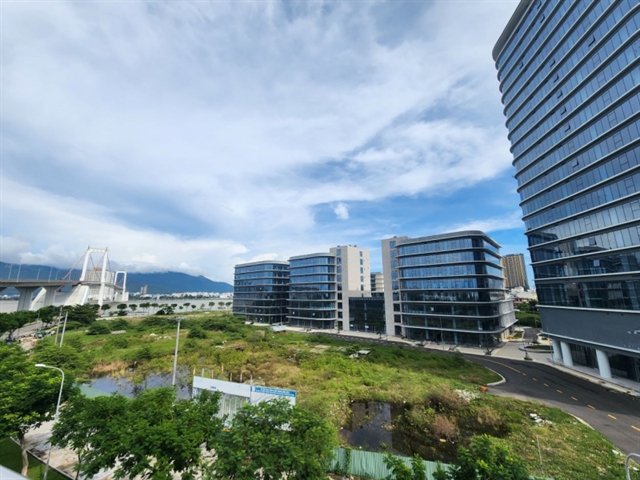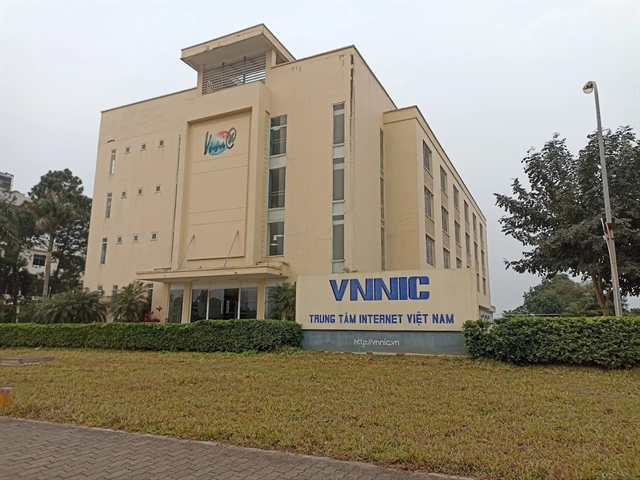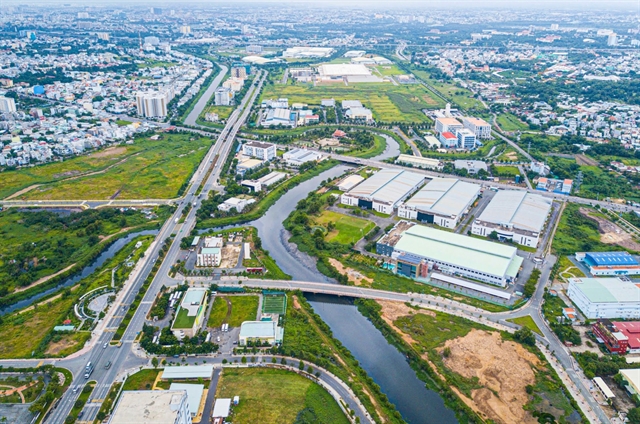 Talking Shop
Talking Shop

The Vietnam Administration of Forestry (VNFOREST) is drafting a decree of Vietnam Timber Legality Assurance and Agreement (VNTLAS), which is seen as a key tool to prevent illegal timber products. Deputy Director General of VNFOREST Phạm Văn Điển spoke with Việt Nam News reporter Thu Giang about the importance of this decree.

|
| Deputy Director General of VNFOREST Phạm Văn Điển |
The Vietnam Administration of Forestry (VNFOREST) is drafting a decree of Vietnam Timber Legality Assurance and Agreement (VNTLAS), which is seen as a key tool to prevent illegal timber products. It is expected to help implement the country’s sustainable forestry development and export of timber and timber products with legal origin. Deputy Director General of VNFOREST Phạm Văn Điển spoke with Việt Nam News reporter Thu Giang about the importance of this decree.
Can you tell Việt Nam News readers about the importance of VNTLAS in the country’s export of timber and timber products?
VNTLAS, a timber legality assurance system, is necessary in Việt Nam’s policies and guidelines on forestry development, towards sustainability, high efficiency and responsibility.
A decree on VNTLAS is needed because it will help develop a timber legality assurance system, ensuring that the country’s exports of timber and timber products come from legal sources, including systems to verify that Vietnamese businesses are only importing timber that has been legally harvested and traded in accordance with the relevant legislation in the country of origin.
The system is also a key part in the country’s exports as it will allow businesses to export only verified legal timber products to the EU and other markets when the Voluntary Partnership Agreement on Forest Law Enforcement, Governance and Trade (VPA/FLEGT) officially enters into force on June 1, 2019.
VNFOREST plays an important role in the draft decree on VNTLAS. What are the key point of the decree?
The decree aims to concretise the Party and State's guidelines on forestry legislation, contributing to perfecting the forestry legal system and effectively implementing the newly promulgated forestry laws.
This decree will create a legal framework to ensure that Việt Nam’s timber and timber products are legally imported and exported, promoting trade.
In addition, it will harmonise with the provisions of international treaties that Việt Nam is a member or has signed.
We are working hard on building this decree, which is expected to make a great change in the timber industry of the country. The decree will be applied for all export markets of Việt Nam, focusing on basic contents, including timber export management and classification of wood processing and export enterprises, to ensure strict control of imported timber, from dossiers to enterprises’ responsibility in every specific case.
In particular, the draft decree issues regulations on FLEGT for enterprises, when they export timber and timber products to the EU market, which is an important part in implementing the VPA/FLEGT signed between Việt Nam and the EU.
It also covers regulations on independent assessment, specialising on criteria and mechanisms for the selection of independent assessment organisations and contents. The assessment is aimed to support the implementation of the decree after it is approved by Prime Minister Nguyễn Xuân Phúc and recommend solutions to strengthen strict management on domestic timber sources and the FLEGT licensing mechanism.
What are difficulties and challenges in implementing this decree?
This decree stipulates many new points with a large scope, involving many industries, localities and international organisations, so that the implementation of this decree requires a lot of researches and efforts.
The implementation will also require human resources with certain qualifications and expertise as well as the capacity to apply advanced information technology in management.
What are solutions to implement the decree effectively?
We need a master plan to ensure the effective implementation of the decree. All must stick to the VPA/FLEGT implementation plan, which was approved by Prime Minister Nguyễn Xuân Phúc in November this year, to organise the implementation.
As for human resources, it is needed to ensure the participation of the provincial people's committees and competent agencies, especially the forest ranger and customs forces at all levels to ensure strict management, in which only legal timber and timber products are allowed to join the supply chain.
In my opinion, it needs to continue building training documents and programmes on this decree and VPA/FLEGT for forest ranger staff, customs and relevant agencies as well as the responsibilities of each sector in co-ordination to conduct the decree, including reviewing and announcing the listing of timber kinds imported into Việt Nam, providing information to verify and classify enterprises, informing organisations and individuals about changes in the management of timber export and import activities, building database on enterprise classification, handling violations and licensing FLEGT.
As for financial sources, we need to ensure funds from various sources from the State budget, society and international organisations.
How has Việt Nam received international cooperation in establishing VNTLAS?
International cooperation for the development of the VNTLAS Decree is very vibrant and clear. This is not only from the time of building the draft decree, but also from the negotiation and signing of VPA/FLEGT.
Ensuring legal timber, sustainable management of forests and comprehensive forestry development in Việt Nam is our common determination.
Our country has proactively set up this plan, putting it into law, so it is trusted and supported by forest trade partners.
The draft decree has been commented on by many international organisations, including the EU. Besides, many international organisations have funded consultation workshops for this draft decree, including the FAO, FAO-EU-FLEGT and USAID.
Experts involved in building this decree have also received financial support from organisations such as EFI, GIZ, DFID and JICA. Many other items related to VNTLAS have remarkable support of international organisations.
We appreciate and thank international organisations for that help.
In the future, we hope to continue to receive international cooperation in the implementation of the VNTLAS decree, sustainable forest management and forest certification, raising productivity and efficiency of forests and applying advanced technology solutions as important factors in forestry management and business. — VNS
BOX:
Export value of forest products expected to hit $11 billion
Việt Nam’s export value of forest products was estimated to reach US$11 billion this year, equal to 104.8 per cent of the 2019 plan.
This figure was given by VNFOREST after it witnessed a year-on-year increase of 20.5 per cent to $10.24 billion in the January-November period.
Of the figure, timber and timber products reached $9.64 billion, increasing by 19.7 per cent while the value of non-timber forest products was $600 million, up 37 per cent.
Vietnamese forest products are exported to over 140 countries and territories. Of which, the main export markets include the US, EU, Japan, China and South Korea, which all account for about 87 per cent of Việt Nam’s total export value.




